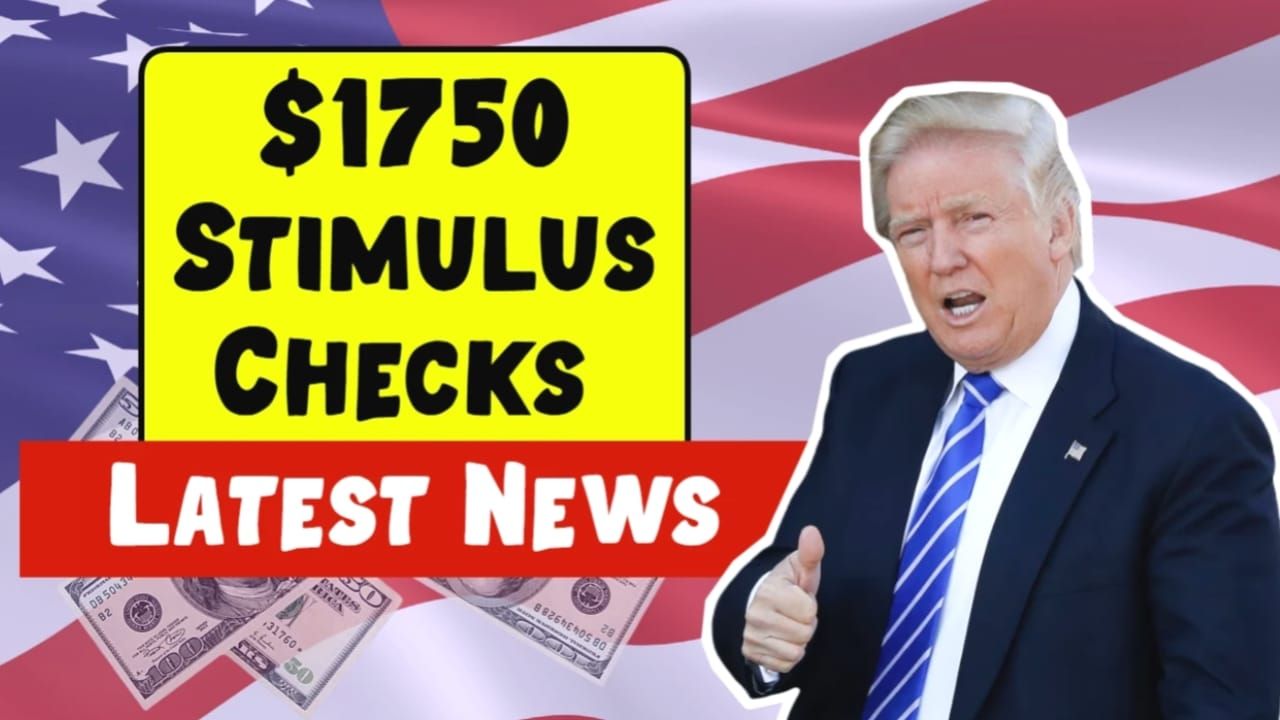A fresh round of $1750 Stimulus Checks is on its way to millions of Americans, designed to offer much-needed financial relief amid rising inflation and the high cost of living. This one-time payment aims to ease economic pressure on families, seniors, and workers struggling with daily expenses like rent, groceries, and bills.
Unlike previous stimulus efforts that targeted specific groups, these new $1750 Stimulus Checks have broader eligibility and a faster rollout. Here’s everything you need to know about who qualifies, how to receive the payment, and what steps to take to ensure you don’t miss out.
What Are the $1750 Stimulus Checks For?
With ongoing inflation pushing up prices for essentials such as housing, food, healthcare, and fuel, many households are finding it hard to stay afloat financially. The government’s $1750 direct payment is meant to provide quick support to those who need it most, helping cover essential costs and reduce financial strain.
This relief payment primarily supports:
- Low to moderate-income earners
- People receiving federal benefits like Social Security, SSI, or SSDI
- Families with children or dependents
- Workers impacted by rising inflation
The goal is to offer meaningful aid to a wide range of Americans, from working families to seniors, helping them regain financial stability.
Who Qualifies for the $1750 Stimulus Checks?
The eligibility for the $1750 Stimulus Checks is more inclusive than previous rounds. To qualify, you typically need to meet the following criteria:
- Be a U.S. citizen or legal resident
- Have filed a tax return for the most recent tax year (even if your income was low or zero)
- Your adjusted gross income (AGI) falls under:
- $75,000 for individuals
- $150,000 for married couples filing jointly
- $112,500 for heads of household
- Receive federal benefits such as Social Security, SSDI, SSI, or VA benefits
- Be a dependent or caregiver for dependents (with some exceptions)
If you received earlier stimulus payments, chances are high you’ll qualify for this one too.
Also Read – DWP Cost of living support: How and when £326 payment will be paid
When Will the $1750 Stimulus Checks Be Sent?
Payments are expected to begin next month, with a phased approach based on your tax filing status, benefits information, and payment method.
- If you filed your taxes recently and provided direct deposit info, the money will likely go straight into your bank account.
- For others, the IRS will send a paper check or prepaid debit card by mail.
- Most people don’t need to apply—the IRS and Treasury will automatically send payments based on existing records.
Do You Need to Apply for the $1750 Stimulus Checks?
Generally, no application is necessary if you’ve filed taxes recently or receive federal benefits. However, you should take action if:
- You haven’t filed a tax return in the past two years
- You recently changed your address or bank information
- You don’t receive government benefits and have very low or no income
In these cases, filing a simple tax return or updating your info through IRS tools (once available) can help ensure you get your payment.
How to Make Sure You Receive Your $1750 Stimulus Payment
To avoid delays:
- Keep your tax filings current
- Verify your mailing address and banking info with the IRS or Social Security Administration
- Beware of scams—remember, the IRS will never call, email, or text asking for personal bank details
- Monitor your bank account and mailbox when payments start
- Contact the IRS or SSA if you’re eligible but haven’t received your check
What Can You Use the $1750 Stimulus Checks For?
There are no restrictions on how you spend your stimulus money. Many people use it for:
- Rent or mortgage payments
- Utility bills
- Groceries and food essentials
- Medical expenses
- Childcare costs
- Paying down debt
- Building emergency savings
The payment is meant to provide breathing room during tough economic times.
Frequently Asked Questions About the $1750 Stimulus Checks
Q1: Will the $1750 stimulus be taxed?
No, these payments are not taxable and won’t affect your tax return or benefits.
Q2: I didn’t file taxes last year. Can I still get the payment?
Possibly. You may need to file a simple return or use government tools when they become available.
Q3: Are Social Security and disability recipients eligible?
Yes, those receiving Social Security, SSDI, SSI, or VA benefits will likely receive the payment automatically.
Q4: How do I track my payment?
The IRS plans to launch a “Get My Payment” tool where you can check your stimulus status.
Q5: Can U.S. citizens living abroad qualify?
Yes, if you meet the eligibility requirements and file taxes accordingly.
Final Thoughts
The upcoming $1750 Stimulus Checks offer crucial support to millions facing the continued impact of inflation and rising living expenses. Whether you’re retired, employed, or caring for family, this payment could provide the extra help you need to manage bills and expenses.
Most recipients won’t need to do anything — the government will automatically send payments. Still, staying informed and making sure your information is up to date will help you receive your check without a hitch. Keep an eye on your accounts and mail starting next month—you might be one step closer to financial relief.
Some Important Link
| Telegram Group | Click Here |
| WhatsApp Group | Click Here |
| Home Page | Click Here |










